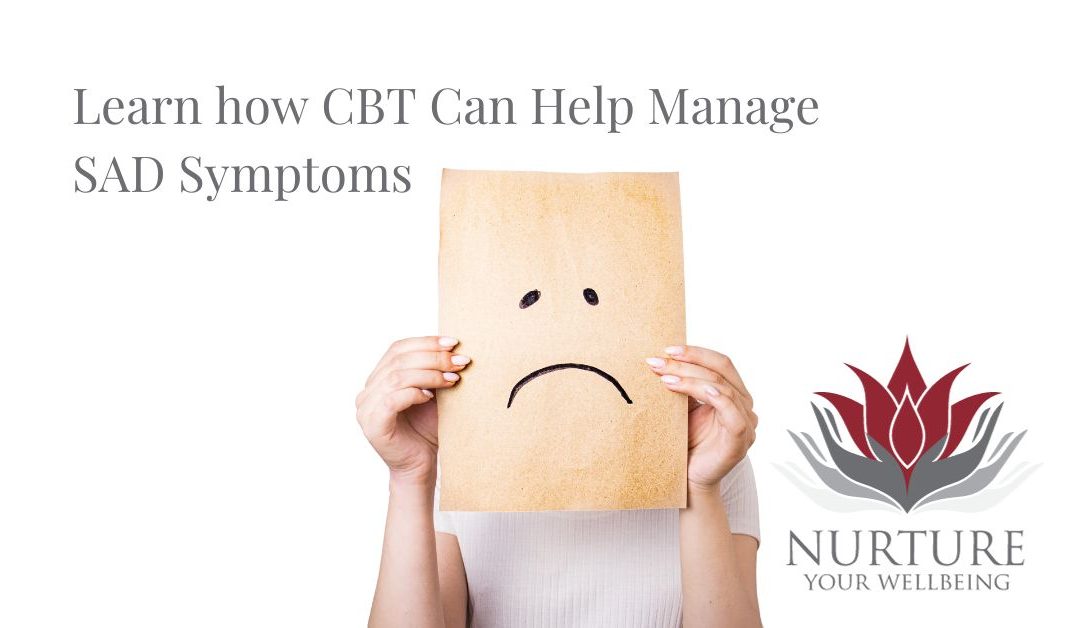As the winter months approach, many people find themselves feeling more tired, irritable, and down than usual. While it’s normal to feel a little blue during the colder, darker months, for some individuals, these feelings can be overwhelming and debilitating. This condition is called Seasonal Affective Disorder (SAD), and it affects millions of people worldwide. In this article, we will delve into the causes, symptoms, and impact of SAD, as well as explore the benefits of Cognitive Behavioral Therapy (CBT) as a treatment option for managing SAD symptoms.
Understanding Seasonal Affective Disorder (SAD)
Seasonal Affective Disorder, also known as seasonal depression, is a type of depression that occurs at the same time every year, usually starting in the fall and continuing through the winter months. While the exact causes of SAD are still unknown, researchers believe that a combination of genetic, biological, and environmental factors play a role in the development of this condition.
What Causes Seasonal Affective Disorder?
One theory is that the lack of sunlight during the winter months affects the body’s internal clock, which regulates sleep, mood, and appetite. This disruption can lead to a drop in serotonin levels, a brain chemical that affects mood, and an increase in melatonin levels, a hormone that regulates sleep. The result is often feelings of sadness, fatigue, and a lack of energy.
Another theory is that SAD is related to a lack of Vitamin D, which is produced by the body when the skin is exposed to sunlight. During the winter months, when sunlight is limited, many people do not get enough Vitamin D, which can lead to feelings of depression and fatigue.
Symptoms of Seasonal Affective Disorder
The symptoms of SAD are similar to those of depression, but they occur seasonally, usually starting in the fall and continuing through the winter months. Some common symptoms of SAD include:
- Feeling sad, anxious, or irritable
- Losing interest in activities you once enjoyed
- Feeling lethargic or fatigued
- Sleeping more than usual
- Overeating or craving carbohydrates
- Feeling hopeless or worthless
- Difficulty concentrating
The Impact of Seasonal Affective Disorder on Mental Health
SAD can have a significant impact on an individual’s mental health, affecting their ability to function in daily life and causing significant distress. Left untreated, SAD can lead to more severe forms of depression and other mental health disorders, such as anxiety and substance abuse.
Introduction to Cognitive Behavioral Therapy (CBT)
Cognitive Behavioral Therapy (CBT) is a form of talk therapy that has been shown to be effective in treating a wide range of mental health disorders, including depression and anxiety. CBT is based on the idea that our thoughts, feelings, and behaviors are interconnected and that by changing our thoughts and behaviors, we can change how we feel.
How CBT Can Help Manage SAD Symptoms
When it comes to managing SAD symptoms, CBT can be an effective treatment option. CBT for SAD typically involves identifying negative thoughts and behaviors that contribute to feelings of depression and anxiety and replacing them with more positive ones. For example, if an individual is feeling hopeless and helpless, a CBT therapist may work with them to identify more positive and realistic thoughts, such as “I have overcome difficult times in the past, and I can do it again.”
CBT can also teach individuals coping skills for managing SAD symptoms, such as relaxation techniques, exercise, and healthy eating habits. By learning these skills, individuals can better manage their symptoms and improve their overall wellbeing.
The Effectiveness of CBT in Treating Seasonal Affective Disorder
Numerous studies have shown that CBT can be an effective treatment option for managing SAD symptoms. In one study, researchers found that CBT was as effective as light therapy, a commonly used treatment for SAD, in reducing symptoms of depression and anxiety. Another study found that CBT was more effective than light therapy in reducing symptoms of depression.
Other Treatments and Strategies for Managing Seasonal Affective Disorder
While CBT can be an effective treatment option for managing SAD symptoms, there are other treatments and strategies that can also be helpful. Some common treatments for SAD include:
- Light therapy: This involves exposure to bright light for a certain amount of time each day, usually in the morning.
- Medications: Antidepressant medications can be effective in treating SAD symptoms, but they come with potential side effects and should be taken under the guidance of a healthcare provider.
- Lifestyle changes: Making lifestyle changes, such as getting regular exercise, eating a healthy diet, and getting enough sleep, can also help manage SAD symptoms.
Nurturing Wellbeing During the Winter Months
In addition to seeking treatment for SAD, there are also things you can do to nurture your wellbeing during the winter months. Some tips include:
- Getting outside in natural daylight whenever possible
- Engaging in physical activity, such as walking or yoga
- Practicing mindfulness or meditation
- Eating a healthy diet with plenty of fruits and vegetables
- Staying connected with friends and family
Conclusion: Taking Steps to Manage Seasonal Affective Disorder
Seasonal Affective Disorder is a common condition that affects millions of people worldwide. While the exact causes of SAD are still unknown, there are effective treatment options available, such as Cognitive Behavioral Therapy. By taking steps to manage SAD symptoms and nurture your wellbeing during the winter months, you can improve your overall mental health and wellbeing.
If you are interested in learning more about CBT for SAD, consider signing up for therapy with Nurture Counsellor Angie Laslett. With her expertise in CBT and her compassionate approach to therapy, Angie can help you manage your SAD symptoms and improve your quality of life.



Recent Comments